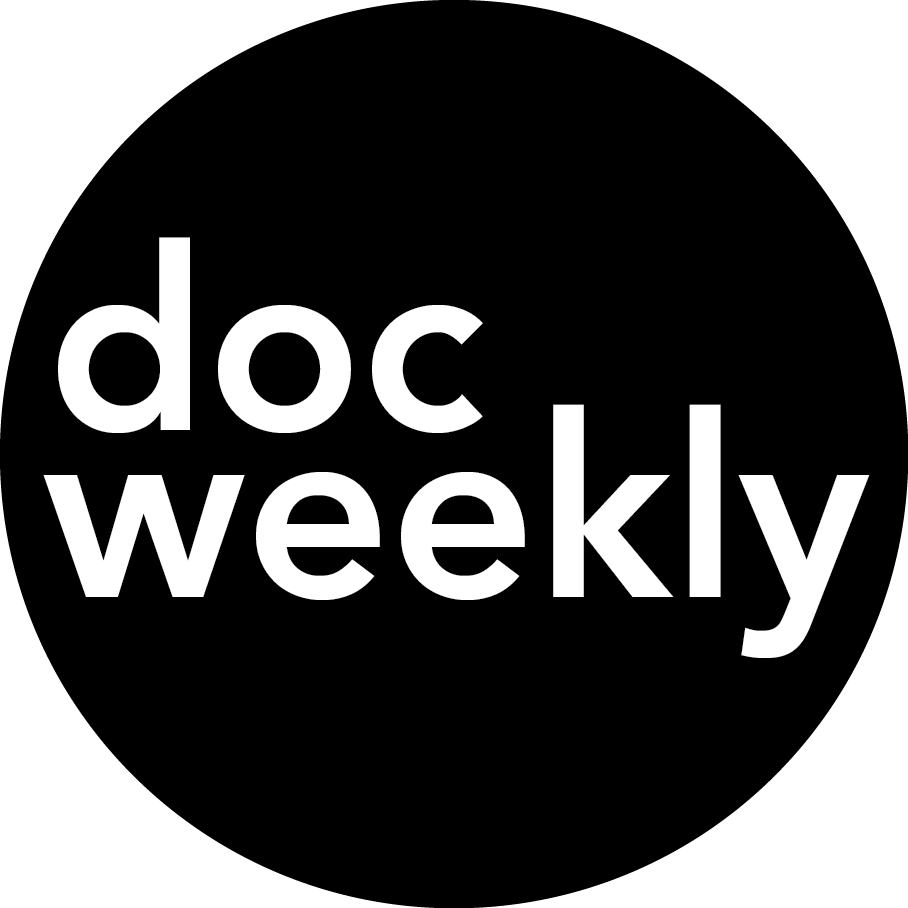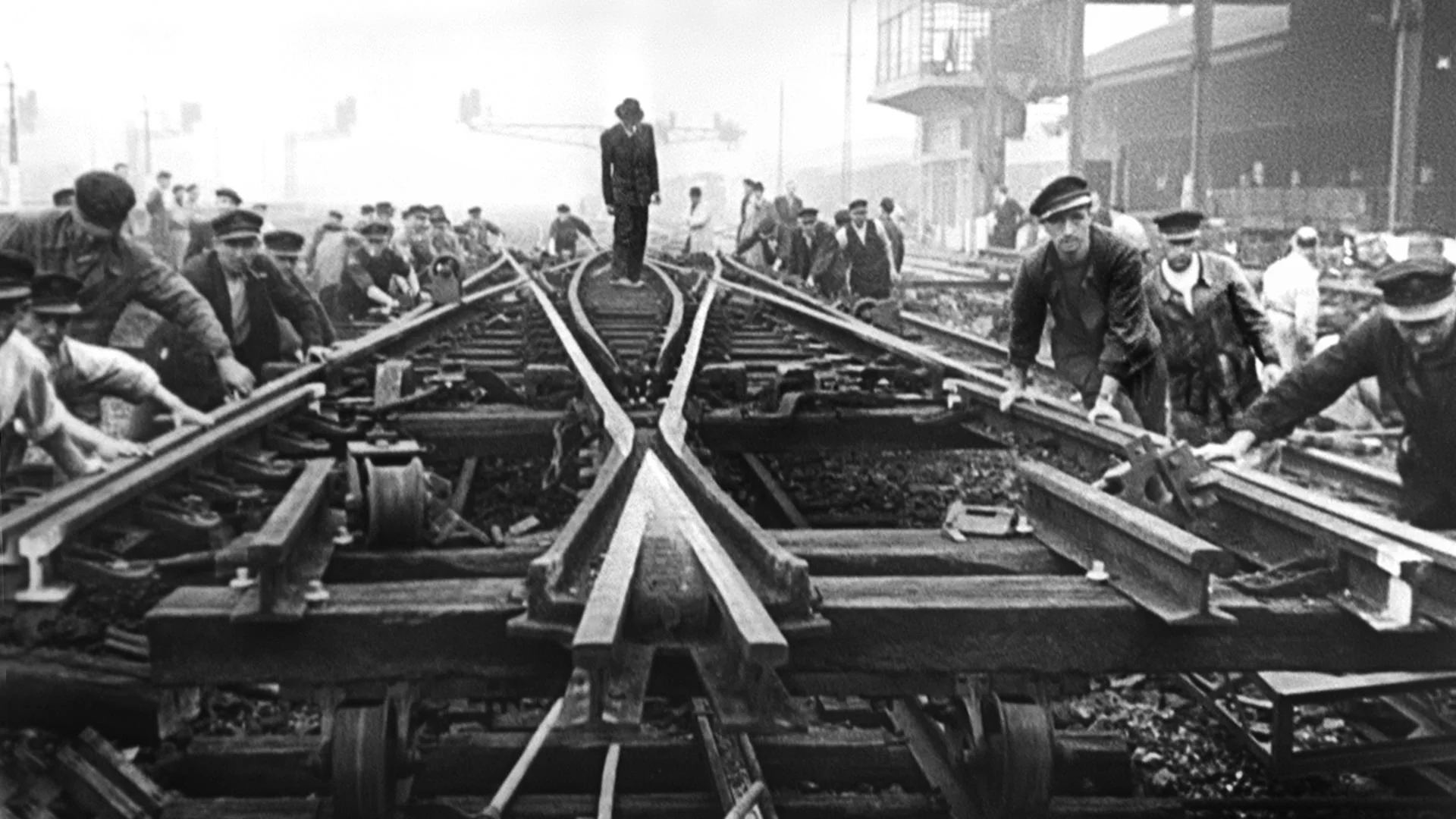IDFA Best Film Winner 'Trains' : A Tragic and Mesmerising Portait of 20th Century Europe
Doc Weekly was in attendance at the 2024 edition of International Documentary Film Festival Amsterdam (IDFA) to catch screenings of some of the year’s best documentaries, but also to see World Premieres in the competition sections of the most exciting films to expect in 2025. Stay tuned for more coming soon !
To an outside observer, the winner of IDFA's 2024 International Competition Best Film and Best Edit might come as something of a surprise. But for us at Doc Weekly, Trains by Maciej J. Drygas stood out from the start. Without dialogue and composed solely of black and white images gleaned from the last century, casual attendees could be forgiven for overlooking it, but the film's nearly hour and a half flies by. You find yourself poring over every scene, searching for a story in the many faces thrust on screen by the machinations of history and time, mesmerised by the cruel and relentless advance of the machine, moved to tears by Saulius Urbanavicius' sound design and Pawel Szymanski's surging composition.
Drygas and his team consulted nearly one hundred archives across the world in order to find the 46 who's precious reels ended up making the cut. In 2014 he wrote in his journal : "Travelling by train serves as a metaphor for life. People move from place to place, they eat, read books, sleep. They go off to war, some return, others only in body bags." Ten years later, Trains is a collective portrait of people in 20th century Europe that goes beyond History in order to capture people's hopes, desires, dramas and tragedies.
The film opens in the eeriness of the first steam engine production workshops. As enormous cast iron plates are waved into place by men clad in oily overalls, the dark, steely and threatening form of the first locomotive emerges from the fire and smoke of a hellish factory. Paired with Szymanski's haunting soundscape of distant clanging and shouting, you wonder if Drygas considers this to be the moment Europe sealed her tragic fate. But before the thought has time to take root, the first trains come chugging into station, gleefully welcomed by expectant crowds. The first innocent passengers of the century climb aboard and are waved off in much excitement.
Quaint British and European landscapes zip by and these first trips exude wonder and marvel. We begin to understand the transformation it wrought on society and the archives bear witness to how the train station first became a place of hellos and goodbyes, a place most of us are bound to by intimate memories of life-defining moments.
Before long, the women in frocks are replaced with men in helmets and uniforms, but everyone is still smiling and waving. Men across Europe are shown getting into trains to go to war, and in the opposite direction civilians are getting onboard to escape it. As the war goes on, the faces change, the uniforms are bloodied, dirtied, limbs are missing and the smiles too.
The film is structured around repetitive cycles and themes, war being central. Specifically the process of men being put on trains en masse, moved around the continent to fight, and then returning in pieces. The repetition of themes is matched by the repetition of images and sounds, such as shifting tracks and rattling carriages, in such a way that you become lost in the chronology of things and have the pleasant feeling of being carried through a dream, sometimes a nightmare.
As the decades go by and we continue to plod through this transe of a film, Drygas grants an incredible intimacy to the moments we share with the people on screen. We see families in outfits of bygone times, talking, laughing, holding each other by the hand. Faces poke out of windows as the train pulls out of the station, smiling, waving, crying. But a subtle key change in the score suffices to transform the atmosphere and render stares suddenly empty, carriages crammed and families divided as the century plunges into yet another downturn, yet another cataclysmic event.
Drygas succeeds in creating an emotional connection between us and the ghosts of our long-gone ancestors, brought back to life by the archives. In doing so, moments of joy - trips to the seaside, picnics or even dancing onboard the train - are felt as keenly and cruelly as those of tragedy, desperation and horror.
The spectre of the holocaust hangs over the film's very concept and Drygas does not hold back in showing his viewers some of the most horrifying images of the Nazis' Final solution. Dead bodies are seen overflowing from half-open stock cars and tracks littered with skeletal bodies as stunned American soldiers pick through the hellish landscape of the camps. An admirable choice and a much-needed reminder of what Europe's last dance with fascism culminated in.
In the build-up, making it even more chilling, a lot of footage is shown of either laughing or closed-faced SS officers shuttling across Europe in luxury carriages with leather and polished iron bar interiors.
In this war, as in the last and in the following conflicts of the century, Drygas shows how the steam engine provided a new scale and speed for the displacement of people across the continent. The repetitive structure of the film gives a dizzying sense of the sheer mass of soldiers and fleeing civilians alike that were ordered to and from the frontlines. With those on the platform crying out and in tears, the silence is deafening amongst those on board, who don't seem to know where they're going, why, or whether they'll be coming back.
It's in these moments that Franz Kafka's opening quote feels most apt : "There is plenty of hope, an infinite amount of hope... but not for us." These are the only words that appear in Trains and Drygas says that he was at first reluctant to use them, worried that "it might narrow the interpretation of the film" before deciding they were just what it needed : "I thought these words [were] very heavily loaded with meaning... and I didn't want to do a movie about the history of locomotives. I wanted to show a deeper truth about the human condition through the journeys on the train."
Indeed, Drygas' portrait of the people of the 20th century is just that, a portrait of the people, not the individuals that relentlessly led them to war and death. With the exception of Adolf Hitler, villain of the century, followed by the popular hero Charlie Chaplin, responsible for the greatest parody yet of The Great Dictator.
As the century, and the film, come to a sleepy close, it's with this in mind that the film bears a warning. Workers, like zombies, wander the halls of large stations, eyes glued to the departure tables, perhaps eating something alone and on the go. Lonely, subdued and astray, what fresh disaster will we be forced to board for next?












